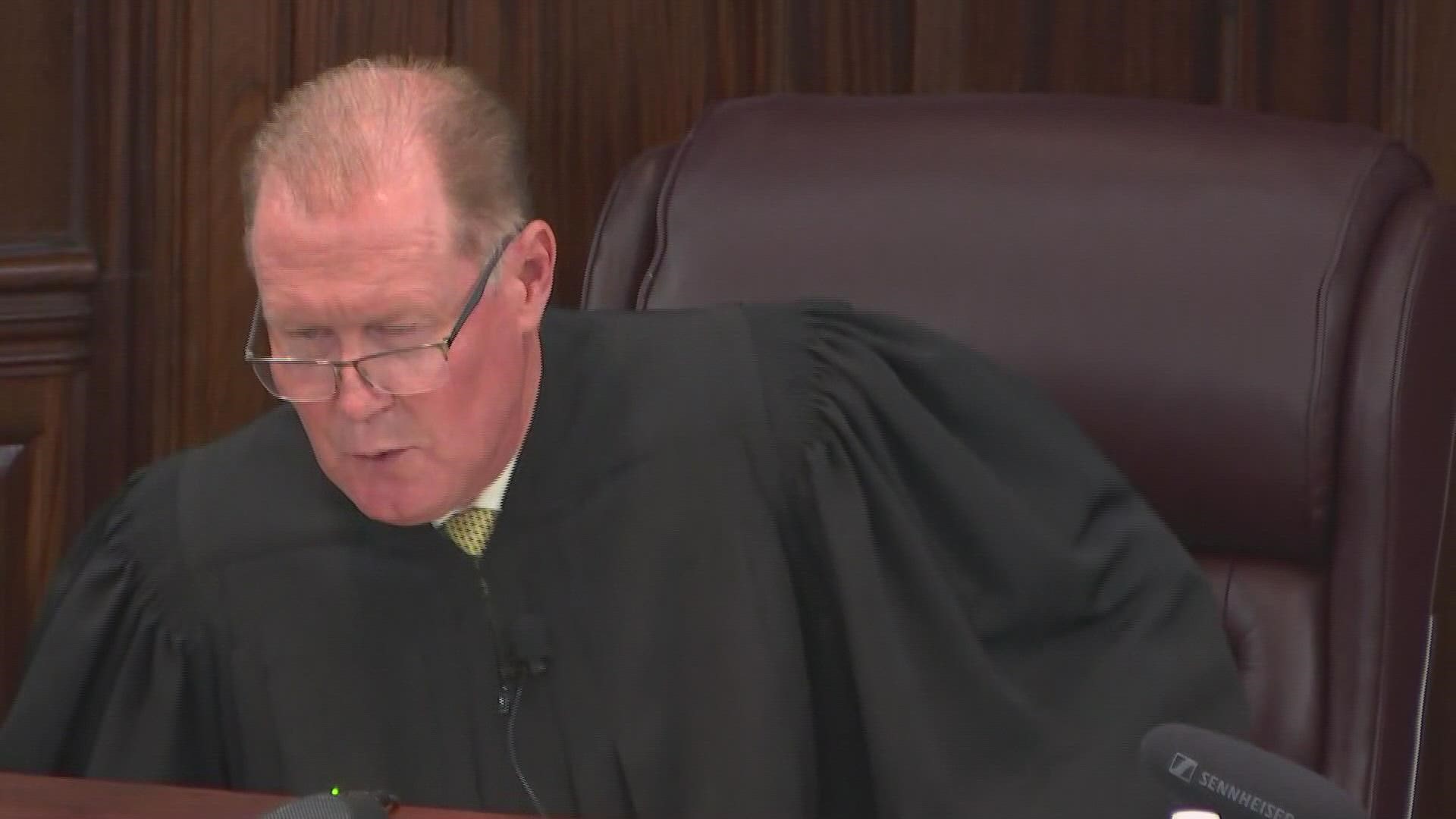BRUNSWICK, Ga. — The racial makeup of the jury selected in the case of three white men accused of murdering Ahmaud Arbery made headlines Wednesday, not just because it is overwhelmingly white (just one Black panelist on a 12-member jury) but because defense attorneys struck virtually all Black jurors – 11 of 12 in the qualified pool.
Prosecutors challenged the defense team's preemptory strikes, saying they were racially biased. Known as a Batson challenge when defendants challenge apparent race-based strikes (a "reverse Batson" or McCollum challenge when the state does so) the law requires a review of each strike to determine if it was legitimate.
As part of that, defense attorneys provided non-race-based justifications for removing each Black juror. Their reasons included one juror who during voir dire said that the defendants “hunted Ahmaud down and killed him like an animal,” and another who failed to disclose an extensive police record and the fact that he was fired by his former law enforcement employer for dishonesty.
Prosecutor Linda Dunikoski complained that defense attorneys were “digging into” potential jurors’ lives and histories in a way they did not with their white counterparts. That led to this exchange with Attorney Laura Hogue, who represents Greg McMichael, in which she agreed they were questioning Black jurors more thoroughly.
DUNIKOSKI I'm also going to ask the court to take a look at how much time was spent with each and every one of the African American jurors. Once again, this isn't one page of notes. This is four pages of notes. Mrs. Hogue just went through all of that -- we got down to even talking about the kids having watched this on TV and talking about questions. No other white female juror got into, “Well, have your kids seen it? And what did you talk to your children about? And how did you get into that?”
But with African American jurors, we went down this path, deep dive into their lives over and over again with four pages of notes, where a lot of the white females -- no questions were asked.
In this case, I want to point out that while [the juror] talked about the hate crime bill. She then said, “The hate crime. I don't know that yet about this case.” And that was something that was glossed over during that. She says that she hopes racism did not play a part in this case. So once again, this juror is similarly situated to every other juror who came in here and was asked, “What do you think you know about this case?” And she basically said, “three men decided to take the law into their own hands to stop who could or could not have been trespassing in nearby homes.” When she was asked by Mr. Sheffield about can you assure us -- basically, can you assure us that you'll be open minded and consider the evidence? She said, “Yes, I'm going to listen to all the evidence.”
This is no different than any other juror that he asked that exact same question to and received the exact same answer. So this juror, while there was a lot of reasons [to strike], there's four pages of notes with a lot of time spent with this juror, deep diving into her life. And the genuineness of the list and litany is no different than any other similarly situated juror, we ask that you please receipt juror 414.
HOGUE My response to that is is this: No. 1: That argument pretends as if the reality is not what it is. It's as if we were trying a rape case. And Ms. Donikoski would say, 'How come you didn't explore that more deeply with the men on the jury, the idea of being accosted, the kind of feelings that you would have about that" -- the kind of things that only those jurors that were women would feel.
So the idea that we would be questioning jurors who made very clear statements about their opinions about this case, and the role that race played in this case, as we did with a number of white jurors who had strong opinions about race and the role that race played in this case -- those are the folks that we're going to do the deep dive with."
Superior Judge Timothy Walmsley did find that "there appears to be intentional discrimination" in selecting jurors in the high-profile case, but stopped short of reversing the defendants’ peremptory strikes.
"One of the things counsel recognizes is the racial overtones in this case," Judge Timothy Walmsley said. "Quite a few African-Americans jurors were excused through peremptory strikes but that doesn’t mean that the court has the authority to receipt them [return them to the panel]."

